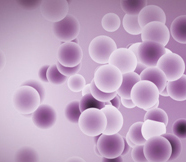登录 |
注册 |
 购物车 |
帮助中心 |
English Vision
购物车 |
帮助中心 |
English Vision
 022-58105045
022-58105045
LE/AF Purified Anti-Mouse/Human IL-7 Monoclonal Antibody MH100I4-14Edatasheet
推荐产品
-
 LE/AF Purified Anti-Mouse IL-17A Monoclonal Antibody M100I17-14F
LE/AF Purified Anti-Mouse IL-17A Monoclonal Antibody M100I17-14F
-
 LE/AF Purified Anti-Mouse CD4 Monoclonal Antibody M10043-14F
LE/AF Purified Anti-Mouse CD4 Monoclonal Antibody M10043-14F
数据表
-
概述
LE/AF Purified Anti-Mouse/Human IL-7 Monoclonal Antibody
IL-7 was initially described as a pre B-cell grow factor expressed in bone marrow stromal cells. IL-7 is essential for normal murine B cell development, and plays a key role in regulating the homeostasis and function of the T-cells. The binding of IL-7 to its receptor induces dimerization of IL-7Ra and the common gamma chain (gc) which leads to activation of receptor associated tyrosine Janus kinases JAK1 (IL-7R) and JAK3 (γc). In adult mice, IL-7/IL-7R signaling up regulates expression of early B cell factor (EBF), and EBF in turn regulates expression of B cell-specific genes required for the transition from lymphoid progenitor to pro-B cells. Besides, IL-7 plays a role in the development of secondary lymphoid tissues. IL-7 is necessary to specify CD8 lineage differentiation during CD4/CD8 cell fate choice in the thymus by inducing expression of the transcription factor Runx3. IL-7 induces anti-apoptotic factors Bcl2 and Bcl-xL and inhibiting pro-apoptotic factors such as Bad and Bax. In this fashion, IL-7 induces cell activation, survival, and proliferation of T lymphocytes. In addition, IL-7 controls T-cell size and metabolism through the activation of PI3 kinase-dependent pathways and regulation of glucose metabolism. IL-7 also controls T cell–dendritic cell interactions that are essential for both T-cell homeostasis and activation in vivo. CD4 T cell lymphopenia increases the expression of circulating IL-7, and TGFb induces IL-7 downregulation.
FCM
Mouse
-
性能
Liquid
Keep as concentrated solution. Store at 4°C as an undiluted liquid. For extended storage aliquot contents and freeze at-20°C or lower. Avoid cycles of freezing and thawing.
PBS, pH 7.2
1mg/ml, >95% (by SDS-PAGE)
Mouse IgG2b
在中国,您可以从天津三箭和我们的授权经销商处购买天津三箭的产品或获得技术支持。
联系电话:022-66211636
400-621-0003






